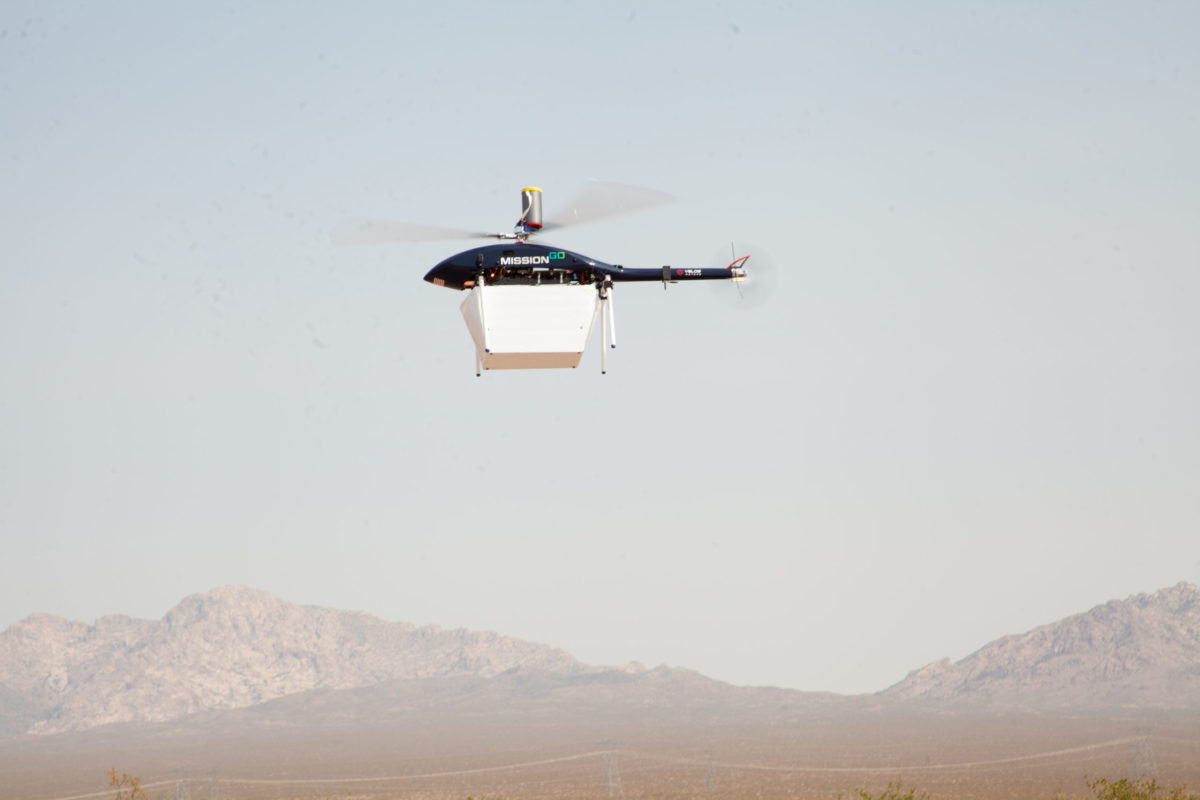Baltimore-based unmanned flight experts that were behind the drone delivery of a kidney across the city are flying high after a new feat this fall.
Working with the Nevada Donor Network, the team at Scott Plank-founded MissionGO helmed two test flights on Sept. 17 in Las Vegas where unmanned aircraft systems transported a human organ and tissue.
One drone flight delivered a kidney about 10 miles, USA Today reported, from an airport to a small desert outpost, marking the longest flight to date delivering a human organ. This was farther than the then-record April 2019 flight in Baltimore, which transported a kidney from West Baltimore to the University of Maryland Medical Center.
Another Las Vegas flight transported research corneas from Southern Hills Hospital and Medical Center to Dignity Health — St. Rose Dominican, San Martín Campus, a distance of about 2.5 miles.
The flights are testing new ways of delivering organs for transplant that don’t require going through traffic, or people to fly. The team also worked to reduce the number of handoffs to make a more “touchless” process.
https://www.youtube.com/watch?time_continue=17&v=eIPvrIFrE4A&feature=emb_logo
The flight also showed Maryland landing in the desert: MissionGo is one of a pair of companies led by Plank, who is the brother of Under Armour founder Kevin Plank, a former UA employee, and an investor who is also funding the efforts. His cofounders are flight operations expert Anthony Pucciarella and University of Maryland School of Medicine transplant surgeon Dr. Joseph Scalea (who accepted the initiative’s Invention of the Year honor in the 2019 Technical.ly Awards).
Pucciarella and Ryan Henderson, who also have roles the University of Maryland UAS Test Site in St. Mary’s County, previously worked with Dr. Scalea and University of Maryland Medical Center on last year’s Baltimore flight. With MissionGO, there’s now a company focused on unmanned aircraft operations around the efforts.
The sister company helmed by these cofounders, called MediGO, is focused on logistics for transporting organs for transplant. Through that company’s work, Dr. Scalea’s role is to analyze the corneas and kidney for tissue architecture and cell viability. This aims to look at any impact the flight may have had on the human tissue, and ensure safety.
Pucciarella said the test flights are “another data point to illustrate that unmanned aircraft are a reliable mode of transportation for life-saving cargo.” The company is planning additional flights in 2021.







